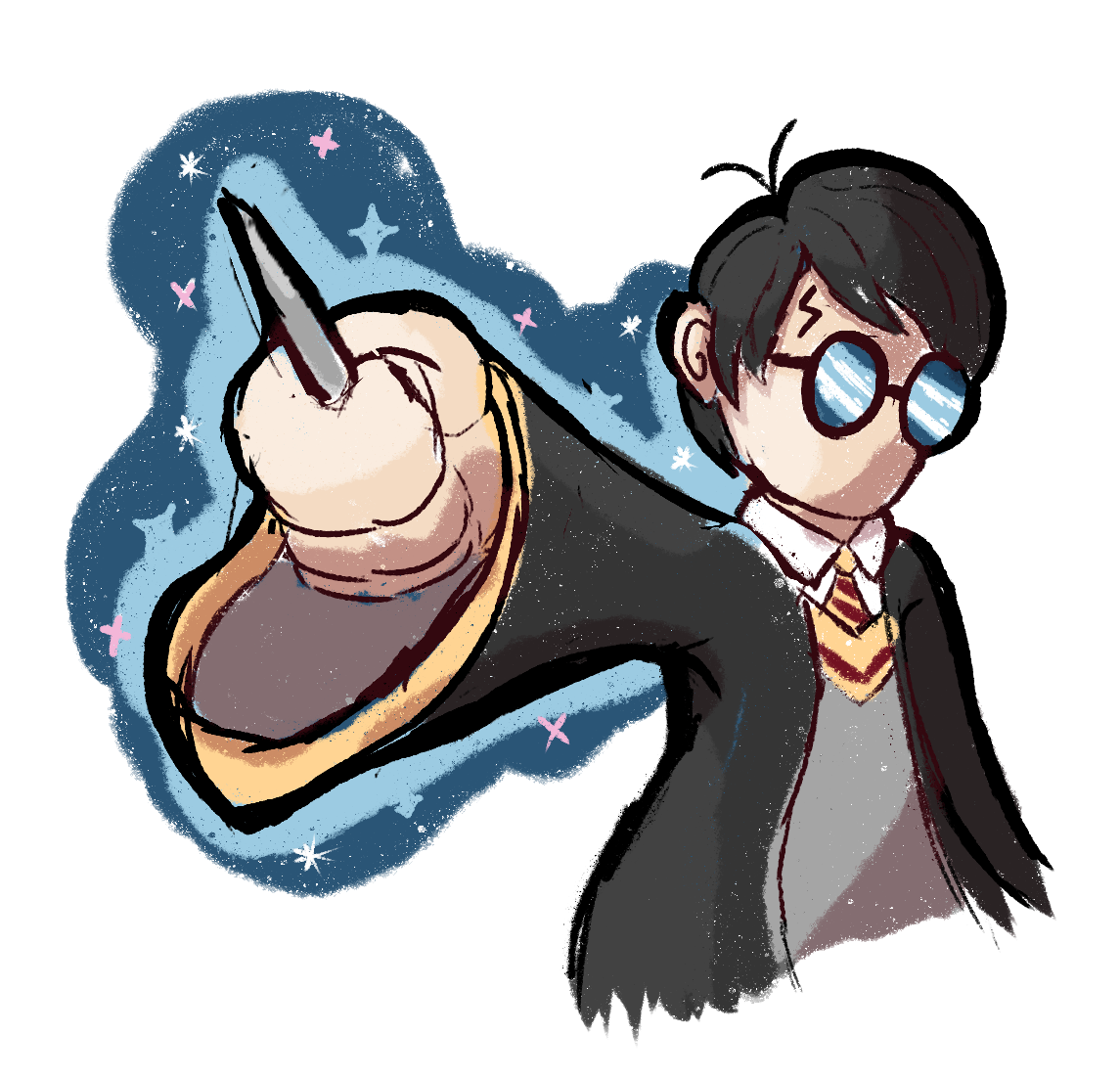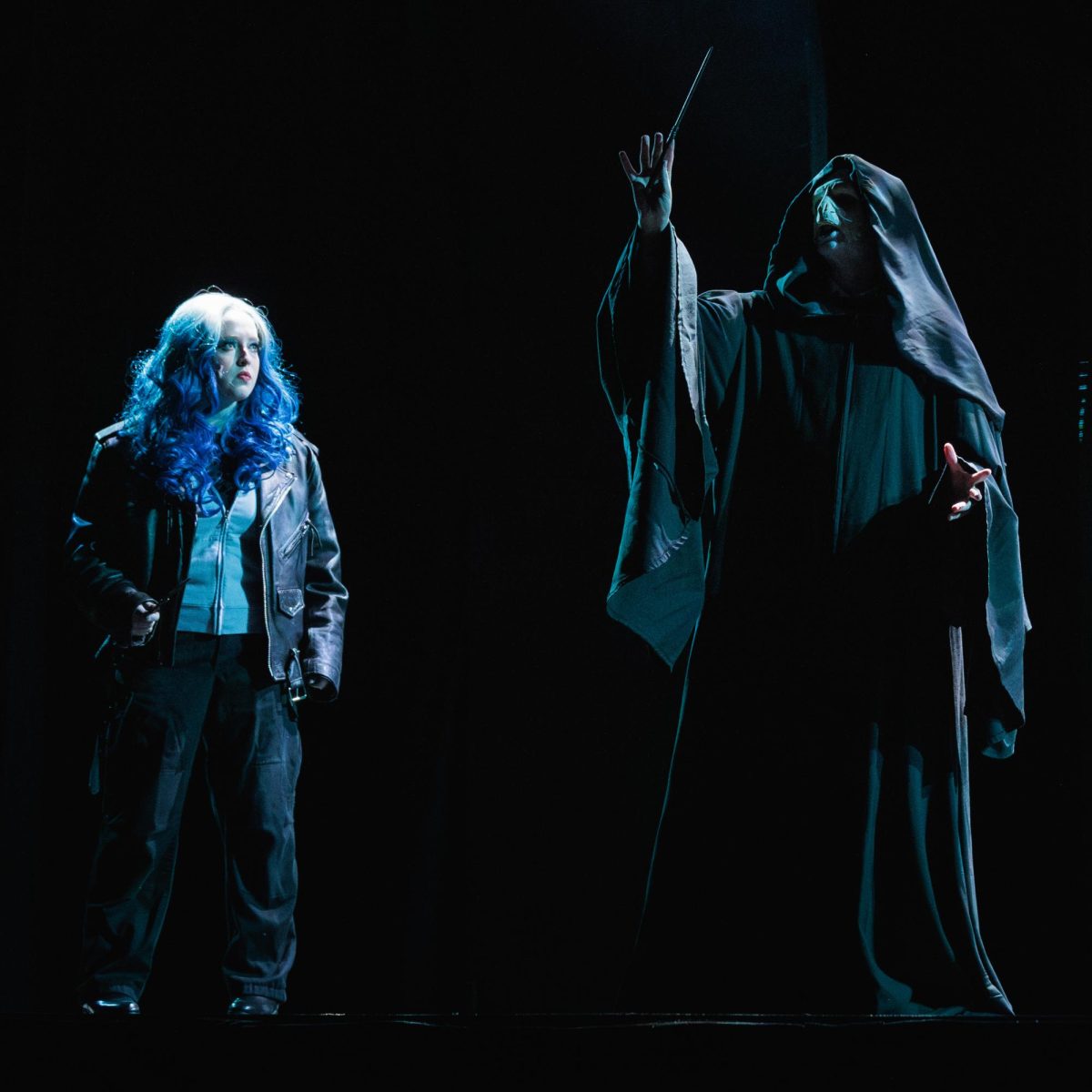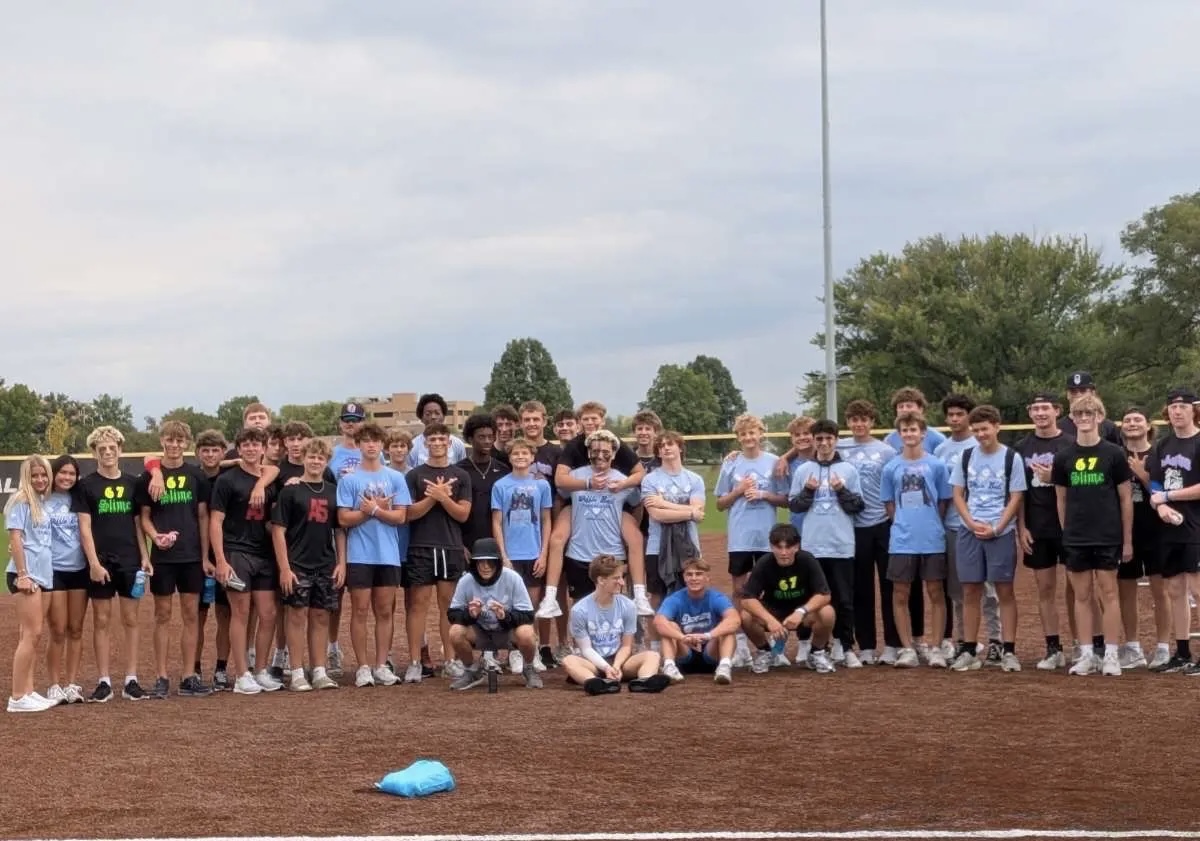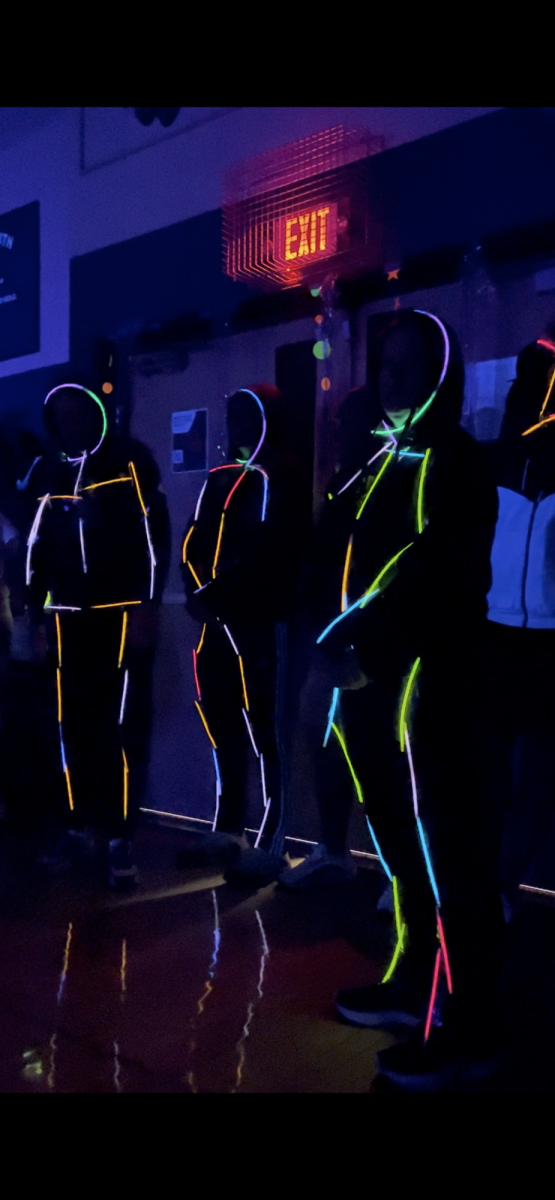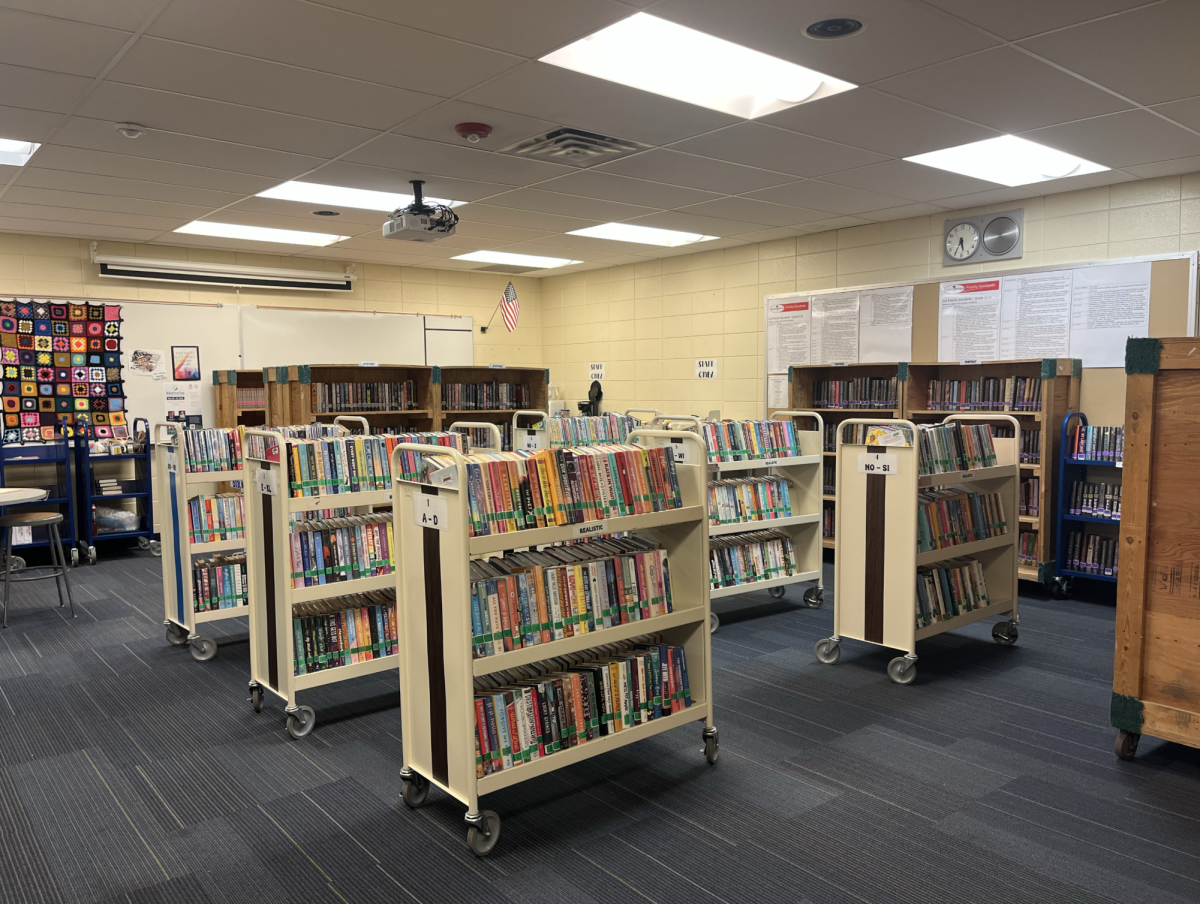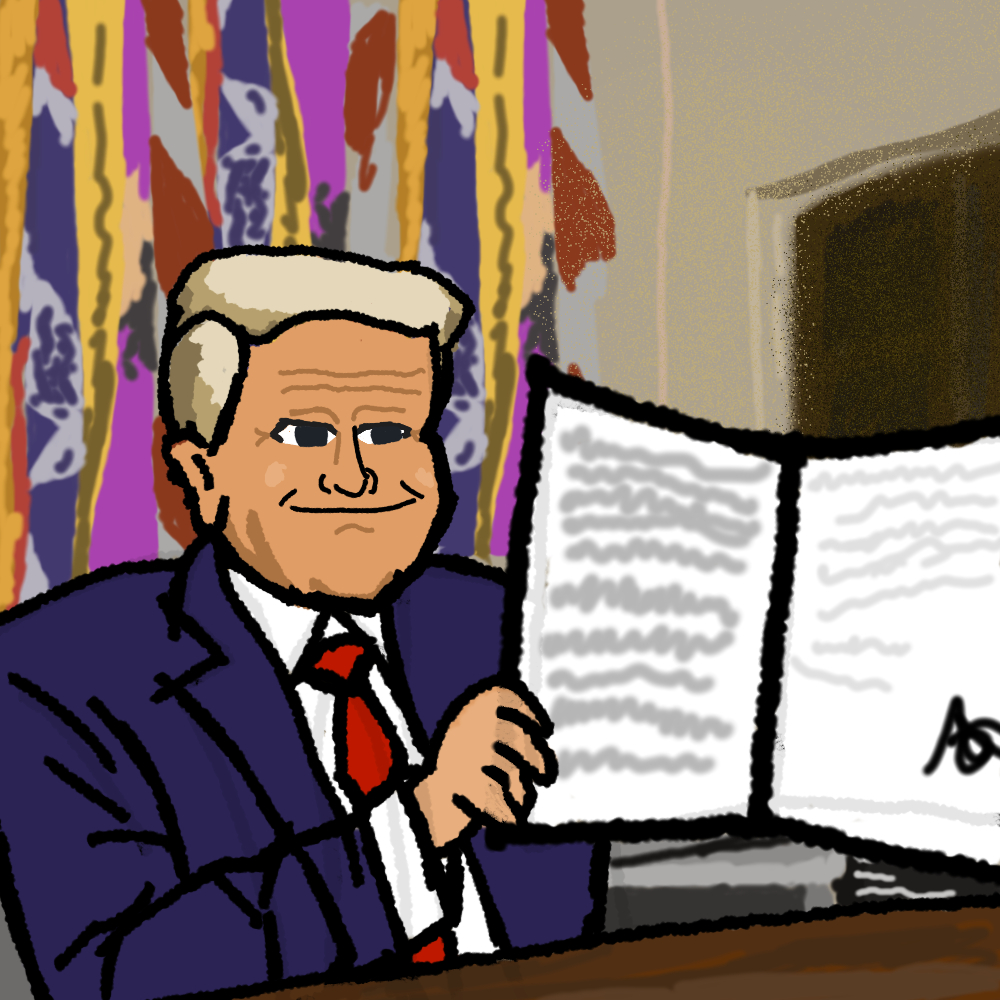Harry Potter and the Cursed Child was performed by the repertory and advanced repertory classes November 18-20. The show follows Albus, son of Harry Potter, on a time-traveling adventure with his friend Scorpius, son of Draco Malfoy.
This show was double cast, meaning that there were two separate casts between nights. Senior Addi Posch, for example, played Rose-Granger Weasley, Moaning Myrtle, and Delphi Diggory.
“I loved all three of my roles,” Posch said. “They are all very different from each other, and it was so fun getting to play the contrast between all of them.”
The show was cast by the repertory theatre classes themselves, although David Hastings, head of the theatre department and the show’s director, had some input on the leads of the second cast.
“When I looked at the second cast, I looked at the people who I thought probably should have got larger roles,” Has
tings said. “I thought [the leads] were very strong, and should have larger roles based on what I had seen them do.”
Tristan Jenkins, the junior who played Albus Potter in the first cast, spoke highly of the repertory theatre classes.
“They’re all super nice, they’re super chill, but they also have a passion for theatre and a desire to work hard,” Jenkins said. “And so when we have all these individuals together that really care about their craft, you can produce amazing shows.”
Alongside the repertory theatre classes, Hastings invited students outside of the classes to be a part of the ensemble. Isabel Simon, a freshman, was invited to play Lily Potter Jr and Sr.
“It was incredible, especially knowing that these are advanced rep shows with some of the best at the school who have been training for years,” Simon said, “and getting to know that I am, in their eyes, talented enough to take on such a role.”
Hastings considered many different factors when deciding who to invite to the show.
“It was people that I thought could pick up things quickly, that could join into a cast- they started rehearsal three weeks and two days before we opened,” Hastings said. “So I needed people that I could trust.”
Rehersals ran hours after school into the evening, leaving the actors and crew members with less time for their other necessary activities, such as homework.
“I would say it adds that layer of complexity because I have several hours less to do homework,” Jenkins said. “But I would also say that it helps to challenge me more, because I get to practice time management.”
Several of the actors had dozens upon dozens of lines to memorize for the nearly 2-hour show. Along with that, the double casting of many of the roles meant that actors had even more lines and cues to memorize than an average play. Students had all sorts of different ways to get them in their heads.
“I practiced them to my family, and I said them to myself when I was doing random tasks,” Simon said, “and then I have a thing where I read it ten times, say it five times, and write it two times.”
Posch, too, had similar methods of memorization.
“I started by making flash cards,” Posch said. “I wrote all of my lines down, I did seperate note cards for each different character, and I would go through them every day.”
One of the most striking features of Harry Potter and the Cursed Child is its use of tech and special effects. Connor Magee-Bower, a senior, was the manager for sound and projections and found it an enjoyable experience.
“This was my first chance to be on the production staff,” Magee-Bower said, “and I really enjoyed that aspect of the show.”
The “set” for the show was a massive LED screen, which displayed different settings using a set of projections.
“We had to design the show around the projections, so once we got the projections, we changed blocking for a lot of the scenes to go around the projections,” Magee-Bower said. “Getting the projections about two weeks before the show opened [was challenging].”
The preparation and performance for the show was not completely flawless. Like every show, this one had its struggles and mistakes.
“I would encourage you to go to Olathe South Theatre and pull up our awards page, and you’d see that we’re probably as high a level as any place in the state of Kansas, if not in the country. But that doesn’t mean there aren’t things you can improve on,” Hastings said. “I used the original [script], as I do on every production I direct, and that probably created a lot of problems for us because I was always trying to match up with the Broadway production.”
The actors, too, had criticisms of their own methods of preparing the show.
“I think I could have had better time management and got all my stuff down faster,” Posch said, “which would have helped my character to be even better.”
Alongside preparations, the actual performances themselves had room for improvement in the eyes of the actors.
“I think that the best thing I could have done better is delve deeper into Albus’s character and more research on his origins,” Jenkins said. “I didn’t do too much research on his background, which I do think is a downside, but I also think that no matter what, I always had areas to improve, even if I’m not fully conscious about where they are.”
Despite everything, Hastings was pleased with the way the show turned out. He spoke incredibly proudly about the actors involved.
“Especially the rep and advanced rep class that played two different roles, two different nights, or had one of the three roles that had literally hundreds of lines,” Hastings said. “They knocked it out of the park. I was so proud.”

